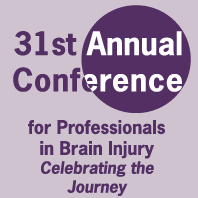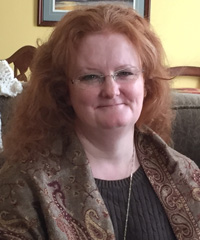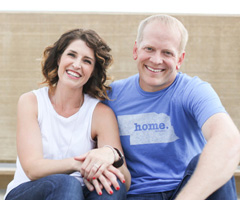
Thank you to our 31st Annual Conference Partners:



Thank you to our Diamond Sponsors:


Thank you to our Gold Sponsors:







Thank you to our Silver Sponsors:









Thank you to our Bronze Sponsors:
A Chance to Grow
Accessible Space
Accurate Home Care
ACR Homes
AmRamp
Beyond Barriers
Community Involvement Programs
DHS-Moving Home Minnesota
Dungarvin Minnesota LLC
Epilepsy Foundation of Minnesota
Essentia Health/Miller Dwan Rehabilitation
Glesener's INC
Handi Medical Supply
IMED Mobility
Integrity Living Options, Inc.
Karcher Foser Services, Inc.
Lutheran Social Service of Minnesota
Mary T
Mom's Meals
Opportunity Partners
Provide Care Inc.
Restart
TBI Residential and Community Services
True Friends
UCARE
Vinland National Center
Wing House
Sponsorships are available for our upcoming 31st Annual Conference. Call Jarett at 612-378-2742 or 800-669-6442, or click here to e-mail.
2277 Highway 36 W, Ste 200, Roseville, MN 55113
Phone: 612-378-2742
Toll Free: 1-800-669-6442
Fax: 612-378-2789
E-Mail:info@braininjurymn.org
2016 Annual Conference - Keynote Presentations
Presentations and Downloads • Keynotes •
Both Thursday and Friday sessions of the 2016 Annual Conference for Professionals in Brain Injury will feature Keynote Addresses in the morning, as well as a closing Keynote Address in the afternoon.
Thursday Morning Keynote Presentation:
Short and Long-Term Management of TBI-Related Symptoms
Kim Gorgens, PhD, ABPP, Associate Professor, Graduate School of Professional Psychology, and Executive Director, Center for Professional Development at the University of Denver
This engaging presentation will summarize the most effective management of the short (less than three months) and longer term (more than 12 months) sequelae of TBI using a real-world approach informed by decades of clinical practice, advocacy and state-of-the-science research. Recently a leader in the billion dollar brain-training industry was ordered to pay more than $2 million in fines to the Federal Trade Commission for deceptive advertising; it is incredibly difficult for consumers to know where to invest their time (and often money). In this presentation, only those interventions with demonstrable efficacy will be highlighted - together they constitute three broad categories of interventions. They include some traditional prescriptive treatments but more so, self-directed therapies. This presentation will review the outcome data supporting these interventions with particular attention to novel avenues of particular promise. Participants will be surprised to learn how much they may or may not already be supporting brain injury recovery.
Dr. Kim Gorgens is a Clinical Associate Professor in the Graduate School of Professional Psychology at the University of Denver and a faculty member in the University of Colorado School of Nursing. She teaches Psychophysiology, Clinical Neuropsychology, and Psychology of Criminal Behavior, manages a portfolio of TBI-related research, consults on brain injury recovery with professional athletes and has lectured extensively on those issues (including a 2010 TED talk on youth sports concussion, several NPR spots and an interview on CNN with Anderson Cooper). She completed a postdoctoral fellowship in Clinical Neuropsychology and is board certified in Rehabilitation Psychology.
Dr. Gorgens is an author in the Encyclopedia of Clinical Neuropsychology and publishes in the areas of brain injury, disability identity, neuropsychological assessment, burn injuries, substance abuse and size diversity. She previously served as the Chair of Colorado Traumatic Brain Injury Trust Fund, President of the Colorado Neuropsychological Society and Chair of the American Psychology Association Committee on Disability Issues in Psychology. She is currently serving on the board of the American Board of Rehabilitation Psychology, is an elected Council Representative for the American Psychological Association, and is on the advisory boards of the American Traumatic Brain Injury Association and the Pediatric Acquired Brain Injury Association. In her role on the Colorado Brain Injury Legislative Collaborative, Dr. Gorgens was involved in drafting and supporting the 2011 concussion law for the State of Colorado (Senate Bill 40 – The Jake Snakenberg Youth Concussion Act).
 Thursday Afternoon Plenary:
Thursday Afternoon Plenary:
If I Ran This Place . . . Would I Want To Live Here?: A Survivor's Perspective on Residential Care
Audrey Nelson, MS, CSW
How would a person who has experienced brain injury run a company that provides residential care for individuals with brain injury? Audrey Nelson will share the lessons she has learned doing just that for the last 20 years at the company she owns and operates, Reality Unlimited, LLC. The first Adult Family Home was opened in 1995 and is named the Mike Wilson House. Audrey met Mike Wilson in 1983. He had had a brain injury in 1981. His many frustrations in trying to return to his community ended in suicide in 1990 and were much of the motivation to develop residential options that focused on the unique needs of individuals with brain injury.
Audrey experienced a brain injury more than 30 years ago at the age of 18. Since then, she has earned both a Bachelors of Social Work and a Masters in Vocational Rehabilitation. She is currently the owner and director of Reality Unlimited, LLC, a company providing "reality-based" community services for individuals with brain injuries. Since 1983, she has been a co-facilitator of a brain injury support group in Eau Claire, Wisconsin. She is currently the President of the Brain Injury Alliance of Wisconsin, a member of the Long-Term Care Council for the State of Wisconsin's Department of Health Services, and a member of the Mayo Clinic Traumatic Brain Injury Model System Regional Advisory Board. She is also a member of the Treatment Instead of Prison (TIP) Taskforce of JONAH (Joining Our Neighbors Advancing Hope) in Eau Claire, Wisconsin.
Friday Morning Keynote Presentation:
Resilience: Bouncing Back after Brain Injury
Jeffrey S. Kreutzer, PhD, ABPP, FACRM, Rosa Schwarz Cifu Professor of Physical Medicine and Rehabilitation, and Professor of Neurosurgery and Psychiatry, Virginia Commonwealth University – Medical Center; Director, Virginia TBI Model System of Care
Traumatic brain injury often causes dramatic life changes. Some survivors do not fare well and face seemingly insurmountable challenges in trying to live independently, work and maintain positive relationships. Some are burdened with emotional distress in the form of anxiety and depression. On the other hand, a good number of survivors are resilient. They feel good about their lives despite having severe injuries and facing great challenges. They are able to find and keep jobs, live independently and maintain supportive relationships. This presentation will focus on resilience and identifying definitions of resilience and characteristics of resilient survivors. It will also detail strategies and empirically-based clinical interventions for improving resilience.
Jeffrey S. Kreutzer, PhD, ABPP, is a Professor of Physical Medicine and Rehabilitation at Virginia Commonwealth University (VCU, Medical College of Virginia Campus. He serves as Director of Virginia's federally designated Traumatic Brain Injury Model System and coordinates VCU Health System outpatient services for families and persons with brain injury. A founding member of the Brain Injury Association of Virginia, Dr. Kreutzer is a neuropsychologist and family therapist with more than three decades of experience developing, providing and evaluating brain injury services. He has published more than 160 peer-reviewed papers and is the primary developer of the Brian Injury Family Intervention – an empirically-based education, skill building and psychotherapeutic program for families. Dr. Kreutzer is the Editor-in-Chief of the Encyclopedia of Clinical Neuropsychology and in 2010 he received the Distinguished Lifetime Contribution to Neuropsychology Award from the National Academy of Neuropsychology. In September, 2013, he received the North American Brain Injury Society Award for Innovations in Treatment.
 Friday Afternoon Plenary:
Friday Afternoon Plenary:
Living through the unthinkable every day: The differing perspectives of a Mother and Father
Since their daughter Alexis was the victim of abusive head trauma at daycare in 2008, Brandon and Tiffany Verzal have been tireless advocates for brain injury awareness, the importance of rehabilitation and child abuse prevention.
Alexis's assault occurred at 14 months old, and was followed with seven years and thousands of hours of intense, specialized therapy. Her recovery has gone significantly beyond anything doctors ever imagined, but severe deficits remain that will impact her for the rest of her life.
Tiffany has spoken to dozens of classes and civic groups across the region about both brain injury and child abuse awareness. Brandon is President of the Nebraska Child Abuse Prevention Fund Board, a Governor-appointed position. Together they own a video production company in Lincoln. Their 2012 documentary "Forever Shaken" is used around the world to educate parents and caregivers about Shaken Baby Syndrome.

